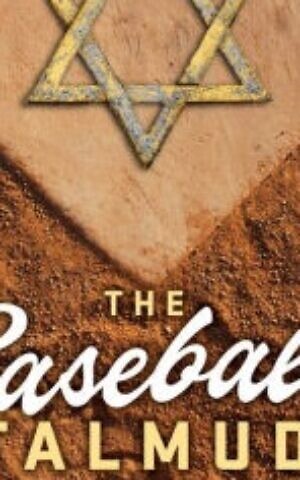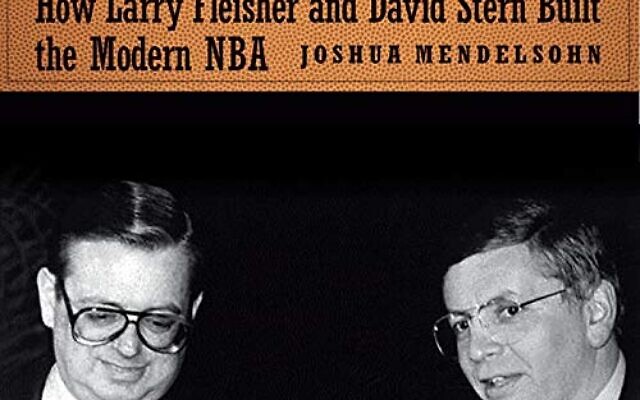Sports Books for Dad
Here are a few solid suggestions for literature about sports that would make great gifts for Father's Day.
Labor of Love?
If you are interested in learning more about sports labor history, veteran labor attorney Joshua Mendelsohn has written just the book for you. In “The Cap: How Larry Fleisher and David Stern Built the Modern NBA” (University of Nebraska Press), Mendelsohn, who currently serves as senior labor counsel for the Screen Actors Guild — American Federation of Television and Radio Artists, examines how the NBA and the National Basketball Players Association jointly formed a salary cap in 1983 — the first in all of pro sports — amidst a looming players’ strike on one side and potential financial catastrophe on the other.
In doing so, Mendelsohn makes a compelling case for how the salary cap emerged as a stabilizing force for a league that had been in a precarious fiscal state for decades.
Just like the NBA salary cap itself, “The Cap” is a revolutionary work in the sense that it is truly the first book solely dedicated to examining the labor history of the NBA. Baseball’s labor history, according to Mendelsohn’s introduction, has been chronicled in books and articles that are both “endless and fantastic.” The author opines that “basketball, however, was different. There was very little” labor reporting when it came to the NBA. Mendelsohn’s enlightening tome — it covers a far-reaching swath of history, including unionization, free agency, the Clippers moving from San Diego to Los Angeles, the Philadelphia 76ers’ acquisition of Hall-of-Famer Moses Malone, Oscar Robertson’s lawsuit against the NBA — fills that glaring void.
Undoubtedly, the book dives deeply into the minutiae of the numerous legal proceedings that ushered in the groundbreaking salary cap. But Mendelsohn still leaves room for chronicling the life stories of the three primary stakeholders: Larry Fleisher, general counsel and negotiator for the National Basketball Players Association (“one of the most influential people in sports history,” per Mendelsohn); commissioner Larry O’Brien and David Stern, the visionary who quarterbacked negotiations for the NBA and ultimately emerged as O’Brien’s successor.
Contemporary basketball fans will particularly enjoy learning about Stern’s backstory, and how even as a multimillionaire NBA commissioner chauffeured from his Scarsdale mansion to his Midtown Manhattan office every morning, he never forgot his working-class childhood spent mopping the floor of Stern’s Deli, a West Side establishment run by his Russian immigrant parents.
With Stern no longer around (he died in 2020), Mendelsohn’s vivid account of Stern’s life and career takes on poignance.
 Al Rosen: The Hebrew Hammer
Al Rosen: The Hebrew Hammer
While there have been numerous books chronicling the Hall of Fame-caliber careers of Sandy Koufax and Hank Greenberg, there has been relatively little space devoted to another mid-20th-century Jewish baseball star: Cleveland Indians third baseman Al Rosen. Until this year, that is. In “Hebrew Hammer: A Biography of Al Rosen, All-Star Third Baseman” (McFarland Books), author Joseph Wancho provides a comprehensive account of arguably one of the most underappreciated Jewish ballplayers.
How good was Rosen? Early in the book, Wancho recounts a three-game series that Rosen’s Indians played at Fenway Park in September 1947, after which legendary slugger Ted Williams remarked to the press about the then-rookie: “He looked mighty good to me.”
Indeed, Rosen had a mighty good career, earning four All-Star nods and finishing with a career .285 average. But because Rosen enjoyed a brief career — and even briefer prime — his feats are examined closely in this biography. In chronicling Rosen’s short-lived reign as one of the American League’s most feared hitters, Wancho explains how Rosen, who was mentored by Greenberg — then serving in the Cleveland front office following the end of his own career — was such an emotional wreck after his Indians got swept by the New York Giants in the 1954 World Series that he couldn’t return home for days afterwards and ultimately played through a litany of ghastly facial injuries, with the exception of the High Holy Days.
Aside from describing Rosen’s remarkable baseball career, Wancho delves into his subject’s fascinating experiences off the field, some of which coincided with his playing days. Readers learn about the considerable antisemitism Rosen faced growing up in Miami, and how later, as a middleweight boxing champion in military school, he learned to fight back with his fists; his childhood battles with severe asthma; his experience serving as a full lieutenant in the Navy during World War II, which included the invasion of Okinawa; his offseason work at an investment brokerage; his spokesmanship for suicide prevention (his first wife, Terry, who suffered from manic depression, took her own life in 1971); his contentious relationship with George Steinbrenner, the New York Yankees owner for whom he worked as club president in the 1970s.
Thus, in “Hebrew Hammer,” a book naturally steeped in baseball history, Rosen’s story is often told through the wider prism of American history, which makes its appeal not solely limited to a baseball-centric audience.
 The Baseball Talmud
The Baseball Talmud
In 2008, journalist Howard Megdal authored the first edition of “The Baseball Talmud” with the express purpose of celebrating Jewish achievements in America’s major leagues. The book was a re-sounding success, one that resonated with an untold number of baseball fans of all faiths. But what truly inspired Megdal to publish the updated edition of “The Baseball Talmud: The Definitive Position-by-Position Ranking of Baseball’s Chosen Players” (Triumph Books), was to highlight the legacy of contributions made by Jews to mainstream American culture against a backdrop of antisemitism. As Megdal notes at the beginning of his fascinating book, “whatever lies ahead for the Jewish people in America, baseball will be our refuge.”
By virtue of accounting for the past fifteen years of baseball history, an updated version of “The Baseball Talmud” covers an even wider spectrum of Jewish ballplayers — 160 to be precise. There’s everyone from current standouts such as Max Fried, Joc Pederson, Alex Bregman and Richard Bleier to those who represented Judaism on the diamond during the Gilded Age (Nate Berkenstock, Israel Pike, Jake Goodman), profiles of household names (Sandy Koufax, Hank Greenberg, Ron Blomberg) alongside those of more obscure ones: Harry Chozen, Ike Danning and Reuben Ewing. With dozens of players featured, it is hard to pinpoint just one that resonates most. That being said, Megdal’s account of journeyman reliever Ryan Sherriff, who has battled mental illness and whose four grandparents were Holocaust survivors, leaves readers hungry for more.
While informative and entertaining like the Talmud itself, these brief bios don’t go into extensive detail about the players’ Jewish backgrounds. Rather, Megdal focuses on their on-field legacies, some of which culminated with induction into the Hall of Fame, others with a cup of coffee in the big leagues. And within virtually every one of the vignettes, there is a healthy balance of statistical analysis and anecdotal material, some of which Megdal produced from personal interviews with the players themselves.
Ultimately, “The Baseball Talmud” is a very timely sports book. After last year’s World Series, which included a record four Jewish ballplayers, and the current sizable crop of Jewish big leaguers, it was only fitting that an amended version eventually hit the bookshelves.
- Sports
- Books
- David Ostrowsky
- The Cap: How Larry Fleisher and David Stern Built the Modern NBA
- salary cap
- Screen Actors Guild — American Federation of Television and Radio Artists
- National Basketball Players Association
- Joshua Mendelsohn
- Larry O’Brien
- David Stern
- Al Rosen: The Hebrew Hammer
- Sandy Koufax
- Hank Greenberg
- Joseph Wancho
- Fenway Park
- High Holy Days
- The Baseball Talmud
- Howard Megdal
- Max Fried
- Joc Pederson
- Alex Bregman
- Richard Bleier
- Nate Berkenstock
- Israel Pike
- Jake Goodman




comments